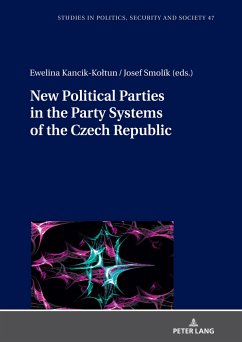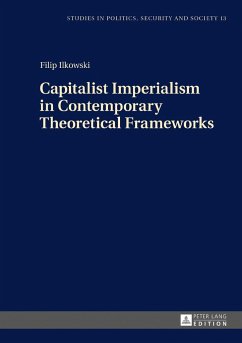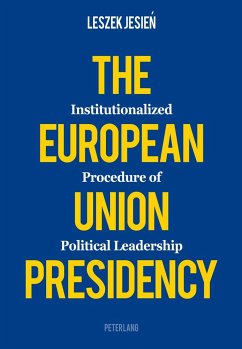
Celebrating Liberation: The Commemoration and Instrumentalisation of the End of the Second World War in Contemporary Czech and Slovak Politics
Versandkostenfrei!
Versandfertig in 6-10 Tagen
35,60 €
inkl. MwSt.

PAYBACK Punkte
0 °P sammeln!
This book contributes to the discussion about the instrumental use of history. Itanalyses two examples of public festivities related to the events and legacy of the finalstage of World War II. The first of these commemoration events is the Liberation Festivalin Pilsen, a public event celebrating the liberation of Pilsen in 1945. The secondevent is the celebration of the Slovak National Uprising anniversary, held annuallyin Banská Bystrica. The analysis focuses on the manner in which public commemorationsof historical events are used and instrumentalised by contemporary politicalelites. Prior ...
This book contributes to the discussion about the instrumental use of history. It
analyses two examples of public festivities related to the events and legacy of the final
stage of World War II. The first of these commemoration events is the Liberation Festival
in Pilsen, a public event celebrating the liberation of Pilsen in 1945. The second
event is the celebration of the Slovak National Uprising anniversary, held annually
in Banská Bystrica. The analysis focuses on the manner in which public commemorations
of historical events are used and instrumentalised by contemporary political
elites. Prior to the political and social relevance of the analysed events, the narratives
they produce are transcending into the cultural and commercial spheres.
analyses two examples of public festivities related to the events and legacy of the final
stage of World War II. The first of these commemoration events is the Liberation Festival
in Pilsen, a public event celebrating the liberation of Pilsen in 1945. The second
event is the celebration of the Slovak National Uprising anniversary, held annually
in Banská Bystrica. The analysis focuses on the manner in which public commemorations
of historical events are used and instrumentalised by contemporary political
elites. Prior to the political and social relevance of the analysed events, the narratives
they produce are transcending into the cultural and commercial spheres.














